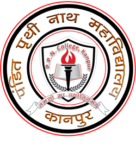RIGHT TO INFORMATION
Introduction
The legislative landscape in India witnessed a transformative stride towards transparency and accountability with the passage of the Right to Information Act, 2005 (RTI Act-2005). This landmark legislation, which came into effect on June 15, 2005, symbolizes a pivotal shift towards empowering citizens by bestowing upon them the invaluable right to access information held by public authorities. The ramifications of the RTI Act-2005 are far-reaching, fostering a culture of openness in the operations of all public bodies, including educational institutions.
One of the best examples of RTI Act-2005 compliance is P.P.N (P.G.) College in Kanpur. Given its status as a renowned college, P.P.N (P.G.) College is clearly covered by the Act. The broad definition of “Public Authority” provided by the Act is noteworthy, as it includes universities and colleges that get a substantial portion of their funding from the government, either directly or indirectly. Higher education institutions are accountable to the same norms of accountability and openness as other public agencies thanks to their broad scope.
At P.P.N (P.G.) College in Kanpur, the RTI Act-2005 is being implemented with close attention to the guidelines set forth by the Higher Education Department, the Government of Uttar Pradesh, and the University Grants Commission (UGC). These guidelines act as a foundation for guidance, outlining the steps involved in making information available to the public. P.P.N (P.G.) College understands how critical it is to match its procedures with the main objectives of the RTI Act-2005, which include enhancing openness, reducing corruption, and giving people the freedom to request information.
P.P.N (P.G.) College is implementing the RTI Act-2005 with a variety of goals in mind. Its main objective is to establish an open culture inside the organization and encourage proactive information sharing. By doing this, the College hopes to increase credibility and confidence among its constituents, who include teachers, students, and the public. In addition, the RTI Act-2005 facilitates the improvement of administrative efficacy and efficiency by streamlining the information disclosure procedures and making them easily accessible to information seekers.
The RTI Act of 2005 is also seen by the College as a means of empowering people via education. P.P.N (P.G.) College advances the intellectual development of its students and the community at large by facilitating access to information. It promotes a participatory style of governance in which people actively participate in the conversation about how the organization is run rather than only acting as passive information consumers.
In summary, P.P.N (P.G.) College, Kanpur’s application of the RTI Act-2005 shows a dedication to the principles of openness, responsibility, and educational empowerment. The College embodies the spirit of the Act in its totality and complies with legal obligations by matching its actions to the standards established by regulatory agencies. By doing this, P.P.N (P.G.) College advances the greater story of democratic government and the emancipation of citizens via information access.
APPLICATION PROCEDURE:
- The application should state “Application under RTI Act 2005” at the top and can be typewritten or neatly handwritten.
- There is no formal application form, however submissions may be made by email, which is the preferred method and is recognized by law.
- Applications won’t be rejected just because they weren’t submitted on the required proforma.
- The application must be prepared in clear, easy-to-read Hindi or English.
- Simply address your application to the “Public Information Officer.” (Avoid bringing up the name.)
- Ask for specific inquiries; don’t generalize in your inquiry.
- Steers clear of overly legalese or technical words.
- Include the appropriate Government RTI Fee with your RTI application, such as an IPO, DD, or other form.
- Declare that you are an Indian citizen at the end of the application.
|
Name of Second Appellate Authority |
Designation |
|
|
Shri Bhawesh Kumar Singh |
State Chief Information Commissioner |
|
|
Name of First Appellate Authority |
Designation |
|
|
Prof. G. P. Verma |
Regional Higher Education Officer |
|
|
Name of Public Information Officer |
Designation |
|
|
Prof. Anoop Kumar Singh |
Principal |

